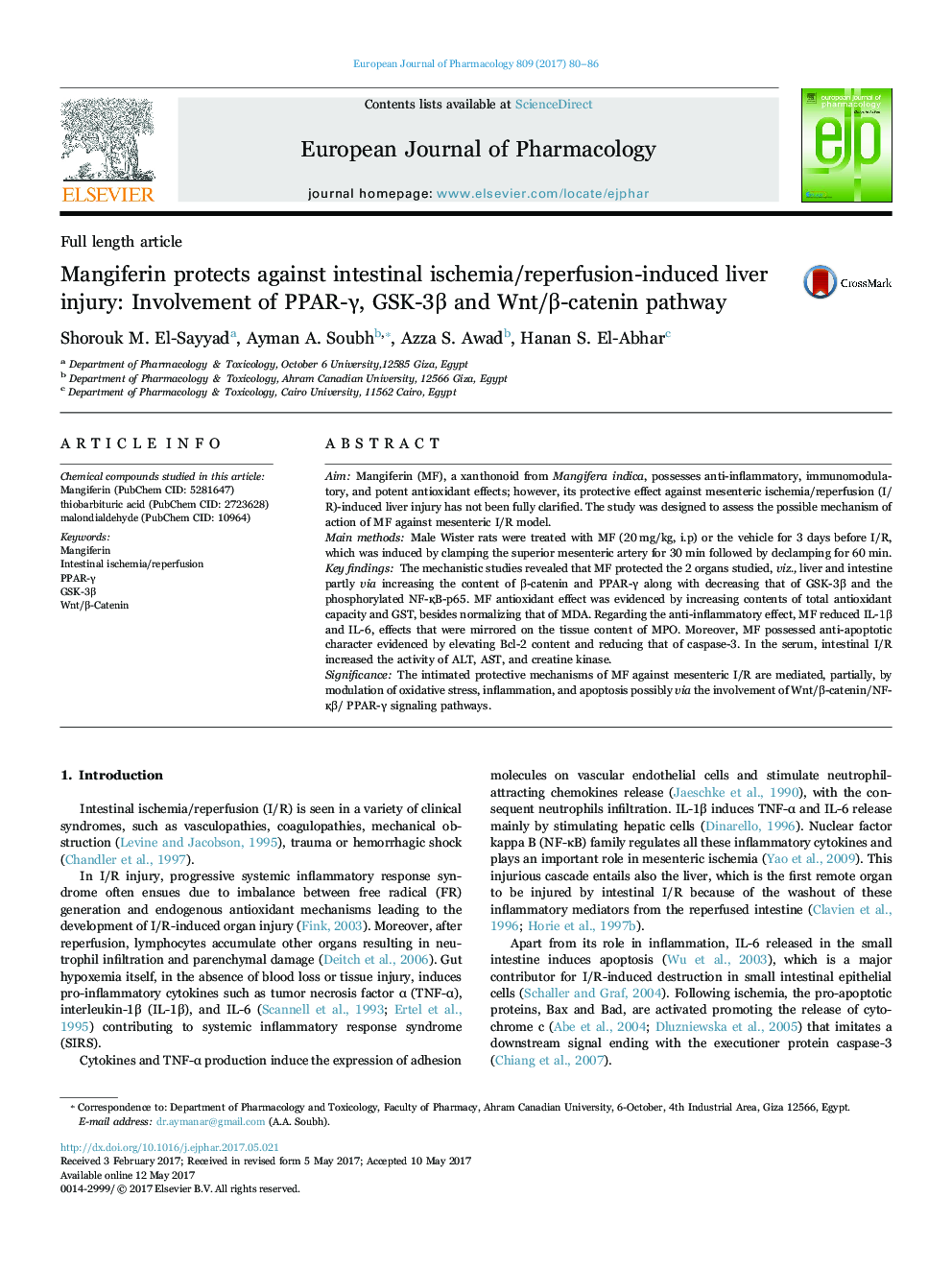| کد مقاله | کد نشریه | سال انتشار | مقاله انگلیسی | نسخه تمام متن |
|---|---|---|---|---|
| 5554506 | 1558871 | 2017 | 7 صفحه PDF | دانلود رایگان |

AimMangiferin (MF), a xanthonoid from Mangifera indica, possesses anti-inflammatory, immunomodulatory, and potent antioxidant effects; however, its protective effect against mesenteric ischemia/reperfusion (I/R)-induced liver injury has not been fully clarified. The study was designed to assess the possible mechanism of action of MF against mesenteric I/R model.Main methodsMale Wister rats were treated with MF (20 mg/kg, i.p) or the vehicle for 3 days before I/R, which was induced by clamping the superior mesenteric artery for 30 min followed by declamping for 60 min.Key findingsThe mechanistic studies revealed that MF protected the 2 organs studied, viz., liver and intestine partly via increasing the content of β-catenin and PPAR-γ along with decreasing that of GSK-3β and the phosphorylated NF-ÒB-p65. MF antioxidant effect was evidenced by increasing contents of total antioxidant capacity and GST, besides normalizing that of MDA. Regarding the anti-inflammatory effect, MF reduced IL-1β and IL-6, effects that were mirrored on the tissue content of MPO. Moreover, MF possessed anti-apoptotic character evidenced by elevating Bcl-2 content and reducing that of caspase-3. In the serum, intestinal I/R increased the activity of ALT, AST, and creatine kinase.SignificanceThe intimated protective mechanisms of MF against mesenteric I/R are mediated, partially, by modulation of oxidative stress, inflammation, and apoptosis possibly via the involvement of Wnt/β-catenin/NF-Òβ/ PPAR-γ signaling pathways.
Journal: European Journal of Pharmacology - Volume 809, 15 August 2017, Pages 80-86